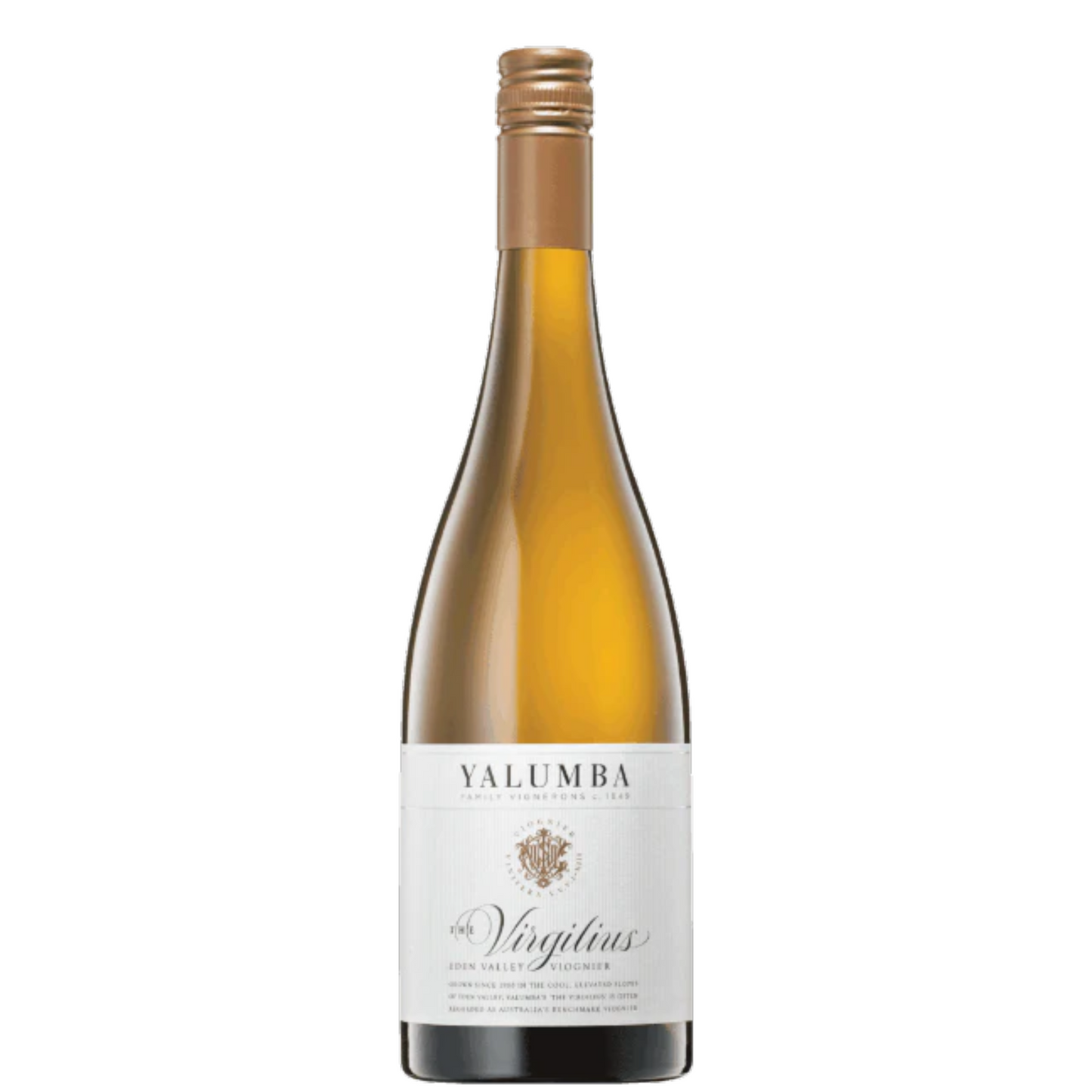Yalumba The Virgilius Eden Valley Viognier 2017
Yalumba The Virgilius Eden Valley Viognier 2017
Vintage: 2017
Volume: 750ml
Country:
Region:
Grapes: Biognier
ABV: 13.5%
Scores:
Product Code: AUYALTVVIOEV2017ST003
Couldn't load pickup availability
Winery Background and History
Yalumba, established in 1849 by Samuel Smith, is Australia’s oldest family-owned winery. Located in the Barossa region of South Australia, Yalumba has built a reputation for innovation and quality over its long history. The winery has been a pioneer in the cultivation and promotion of the Viognier grape in Australia, dedicating significant resources to understanding and perfecting this varietal. Their commitment to sustainable viticulture and winemaking practices has solidified Yalumba’s status as a leading producer in the Australian wine industry.
Producer and Winemaker
Yalumba remains under the stewardship of the Hill-Smith family, with Robert Hill-Smith serving as the current proprietor. The chief winemaker, Louisa Rose, has been with Yalumba since 1992 and is renowned for her expertise with Viognier. Her dedication to this varietal has earned her numerous accolades and has been instrumental in elevating the profile of Australian Viognier on the global stage. Louisa’s philosophy emphasizes minimal intervention, allowing the true character of the grape and terroir to shine through in the wines.
Vineyards and Microclimate
The Virgilius Viognier is sourced from select vineyards in the Eden Valley, a sub-region of the Barossa. Eden Valley’s elevated altitude and cool climate provide ideal conditions for growing Viognier. The region experiences cold winters and moderate summers, with significant diurnal temperature variations that help in retaining acidity and developing complex flavors in the grapes. The soils are predominantly sandy loam over clay, offering good drainage and contributing to the mineral nuances found in the wine.
Grape Varietals & Percentage Used
100% Viognier
Vinification & Aging Methods
The grapes for The Virgilius are handpicked to ensure optimal ripeness and quality. Fermentation occurs in mature French oak barrels using wild yeasts indigenous to the vineyard, which adds complexity and texture to the wine. Post-fermentation, the wine undergoes regular bâtonnage (lees stirring) to enhance mouthfeel and integrate flavors. It is then aged for approximately 10 months in these barrels before bottling, allowing the wine to develop its signature richness and depth.
ABV (Alcohol by Volume)
13.5%
Tasting Notes
The 2017 Virgilius Viognier presents a pale gold hue with green highlights. The nose is aromatic, offering scents of early-season apricots, white peach, and citrus blossoms, complemented by hints of honeysuckle and fresh ginger. On the palate, it is medium-bodied with a creamy texture, showcasing flavors of pineapple, vanilla, crème caramel, and subtle silky spice. The wine’s vibrant acidity provides balance, leading to a long, mineral-driven finish with lingering notes of apricot and almond savoriness.
Food & Wine Pairing
This Viognier pairs exceptionally well with dishes that have rich flavors and a touch of spice. Consider pairing it with Sri Lankan vegetable curry, where the wine’s acidity and fruitiness complement the aromatic spices and creamy textures of the dish. It also matches well with roasted poultry, seafood in creamy sauces, or dishes featuring apricots or almonds, mirroring the wine’s flavor profile.
Service Methods and Temperatures
For optimal enjoyment, serve The Virgilius Viognier slightly chilled at around 10-12°C (50-54°F). Decanting the wine before serving can help in releasing its aromatic complexity and enhancing the overall tasting experience. Use medium-sized white wine glasses to concentrate the aromas and allow the wine to express its full character.
Storage and Aging Potential
The 2017 Virgilius Viognier is drinking beautifully now but also has the potential for further aging. Proper cellaring at a consistent temperature of 12-15°C (54-59°F) in a dark, humidity-controlled environment can allow the wine to develop additional layers of complexity over the next 5 to 8 years. As it ages, expect the fresh fruit flavors to evolve into more honeyed and nutty characteristics, offering a different yet equally enjoyable tasting experience.
Scores
• Wine Enthusiast: 91 points
• Wine Spectator: 92 points
• Wine Advocate: Not available
• Robert Parker: Not available
• James Suckling: 94 points
Share


